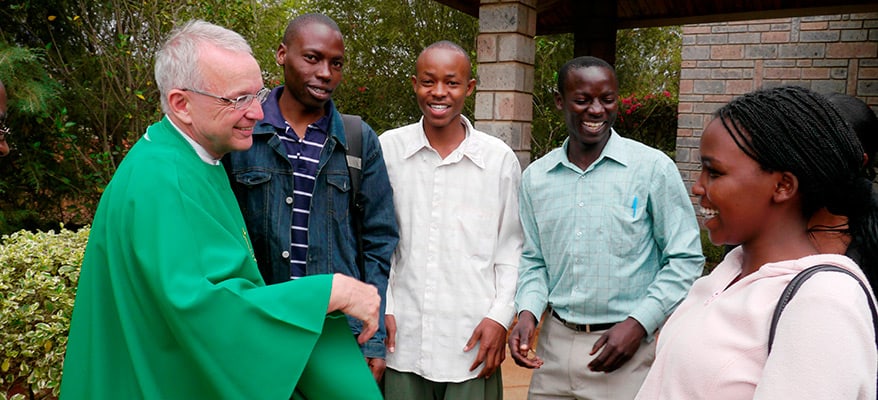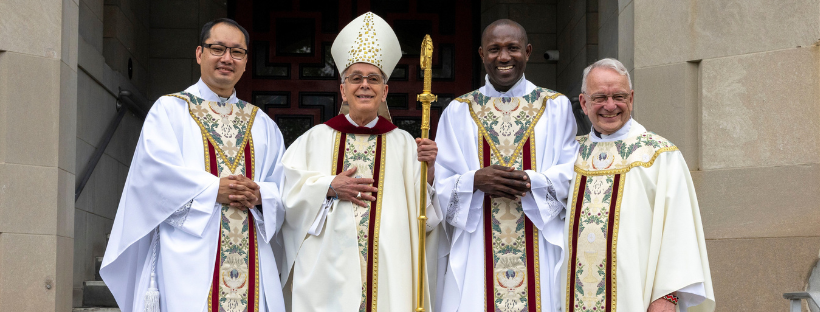“They have no wine.” John 2:3
In Africa, weddings re crucial, fateful, far-reaching, revelatory social events. They are not merely joyful private, personal celebrations, but momentous cosmic communal actions. A marriage binds together the visible and invisible worlds: the extended families or clans of the bride and groom, all their clan ancestors, the invisible living dead, and the yet-to-be-born awaiting entrance into the visible world.
Weddings are also predictive events. Nothing should go wrong during such a pivotal social affair. Everything needs to go right: plenty of happy people, plenty of food, plenty of dancing, plenty of noise. Lavishness, a sign of abundant babies to come, is critical. If something goes wrong, it is more than a regrettable blunder. It is a distressing sign of impending evils.
Ancient Galilee, it turns out, had much in common with contemporary Africa. Things and signs should go just right at a wedding. That’s why I empathize with Mary. The family is at a wedding feast at Cana when she notices that something has gone catastrophically wrong. Filled with dread, Mary tells her son, “They have no wine.”
That’s not a good sign, and here’s why. More than an inconvenience or an embarrassment, this is a social disgrace. No one runs out of wine at a wedding. The families of the bride and groom would endure this shame for generations to come. In fact, given the superstitions of the day, the unlucky bride and groom would become pariahs to be avoided at all costs. So, Mary’s concern for the well-being of her hosts—their reputation—is almost palpable.
And what does Mary’s son say in the midst of this looming social calamity? Jesus answers his anxious mother this way, “Woman, how does your concern affect me?” See what I mean about feeling for Mary?
Of course, we tend to forget that because we know that Jesus did perform a miracle that day, one that left the guests remarking that the best wine had been saved for last. But I ask myself, why did he wind up showing such compassion for the partygoers of this tiny, insignificant, microscopic and totally forgettable wedding feast at Cana? What is the meaning of this caring act for a seemingly inconsequential event in the life of our universe?
Friend, one of the most revelatory mission stories I ever heard came from a Maryknoll brother I knew who served in China as a teacher of university students. One day on the way to class, he stopped to bend down over a puddle of water to save earthworms from drowning. A few of his students had witnessed the rescue and mocked him when he arrived in class. Without missing a beat, he asked them to put themselves in the worm’s place. With that some of the students began to weep.
Now that’s a transformation as good as water into wine.
Sincerely yours in Christ,
Father Lance Nadeau, M.M.
Second Sunday in Ordinary Time
O Mary, at the wedding feast in Cana
you showed a mother’s concern
for the bride and groom and
their future happiness.
You interceded on their behalf
with your son knowing that his hour
had not yet come.
Your message to us today is the same
as to those servants in Cana:
“Do whatever he tell you.”
May we too obey your wish and become
obedient to your son
The Word Made Flesh.
O Jesus, change our daily lives
into the wine of happiness and peace
that comes to those who put their faith in You.
Teach us to give and not count the cost
to love and not recall the wounds
to serve and not mind the sacrifice
till all are welcomed to Your wedding
feast in heaven.
Amen.
Prayer by Father Joe Veneroso, M.M.




